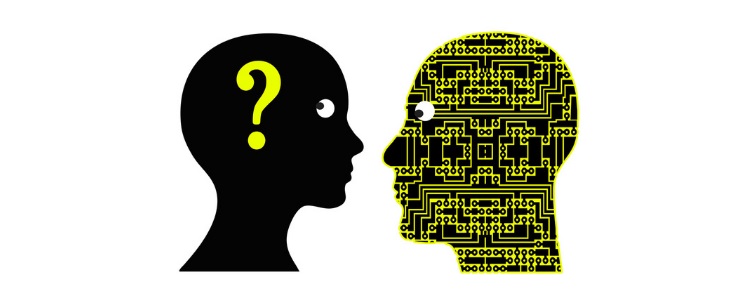As with the hearing impaired, Kanner autists will not hear you if you start talking to them while standing behind them. Before I can understand “language” I have to turn off my natural visual thought process and turn on my learned verbal thought process. But I only do that when I’m aware that someone is talking to me.
Shortly after I was diagnosed with autism, I noticed that my manager was regularly annoyed that I did not carry out assignments. But he had given those orders while standing behind me. No matter how many times I repeated that I couldn’t understand him in that situation and no matter how many times he promised that he would take that into account next time. He kept forgetting and kept getting irritated.
The solution turned out to be to put an earplug with loud music in my ear. If he gave me an order and I didn’t respond, he got irritated by my loud music. Annoying, but better than a manager who thinks you’re not doing your job.
Two years ago, during an introductory evening, the new director of a creative institution came to sit at my table. After exchanging some facts, she said “We should meet up sometime”, got up and walked away. I’m shocked. What did this director want to discuss with me? I thought about it for a few weeks and sent her a letter about some of the issues at the institution. She sent an email to make an appointment for a few months later.
Autists have a reputation for being very literal. According to the theory of mind, we wouldn’t even be able to put ourselves in the shoes of other people.
Autists have a wrongful reputation for being very literal.
In reality, we never get the chance. Without the skills to see if people are listening to you, are interested and understand your story, it is impossible to start conversations with people. As a result, autists can only talk to people who have had special training; caregivers and teachers. These are not conversations but interviews; the counselor asks questions and the autist answers. Care providers adhere to specific rules, so for example when a care provider says “we should meet”, that is exactly what he means.
When that director made the comment, it was the first time in my life that anyone made this comment without meaning it literally. Fortunately, that dawned on me the morning of the interview. We drank coffee for half an hour and made small talk.
Autists have a lot of trouble recognizing feelings. Since I got my diagnosis in 2007, I especially struggle with the feeling of “hate”. Last week I finally found out why. It turns out to be a linguistic problem with the superlative.
When someone says “He is adventurous and she is very adventurous” that is superlative. But that doesn’t apply to “annoying”. “Very annoying” has much the same meaning as “annoying”. To use the superlative you must use the word “hate”. But I had never noticed this before.
Neurotypicals start having conversations with people from the age of five. They are taught the correct definition of words that express feelings in a playful way. Autists never have conversations. So autists only get that information that is discussed somewhere in a book. But this kind of basic knowledge is not discussed in books. (I came across the phrase about “very adventurous” on reddit.com).
Autists never get the chance to learn the nuances of the language
My mentally disabled friend had a similar problem. When his parents asked him as a small child if he wanted a peanut butter sandwich, he answered loudly, “I’d rather not!”. His parents took this as a form of aggression, but they failed to notice that he hated peanut butter. So they gave him that sandwich anyway.
This made the friend feel like no one was listening to him, and over the course of thirty years, his speech became so indistinct that most people thought he was just babbling. After I pointed out to his parents in 2005 that he could talk, they had him examined and discovered that he is autistic.
